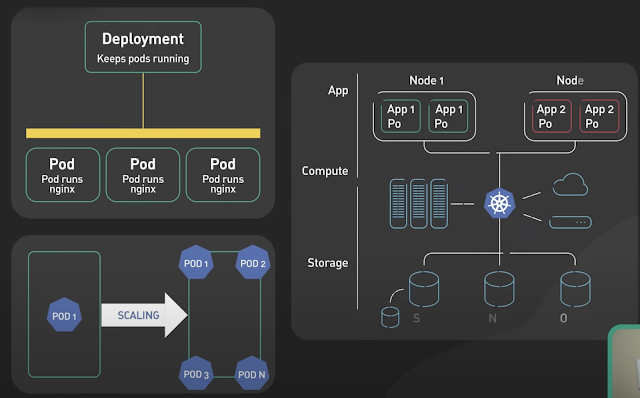Similarly, Operating system virtualization is the use of software to allow a piece of hardware to run multiple operating system images at the same time.
a) Network virtualization
b) Storage virtualization
c) Server virtualization
Today, virtualization is in the forefront - helping businesses with scalability, security and management of their global IT infrastructure.
Virtualization can host multiple guest operating systems. Each guest operating system runs in its own domain, Virtualization schedules virtual CPUs within the virtual machines to make the best use of the available physical CPUs. Each guest operating systems handles its own applications. These guest operating systems schedule each application accordingly.
Full virtualization provides total abstraction of the underlying physical system and creates a new virtual system in which the guest operating systems can run. No modifications are needed in the guest OS or application (the guest OS or application is not aware of the virtualized environment and runs normally).
To know more on Virtualization:
Intro to Virtualization,
SearchServerVirtualization.com,
Red Hat Enterprise Linux Virtualization.



1 comment:
Great stuff on Virtualization. Thanks for the information shared here. I have gathered more information on Virtualization and Computing technologies through the conference Cloudslam 2009 which is the world's largest 1st annual conference on Cloud computing.
Post a Comment